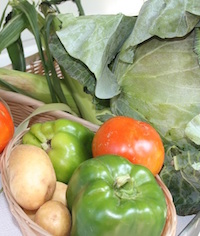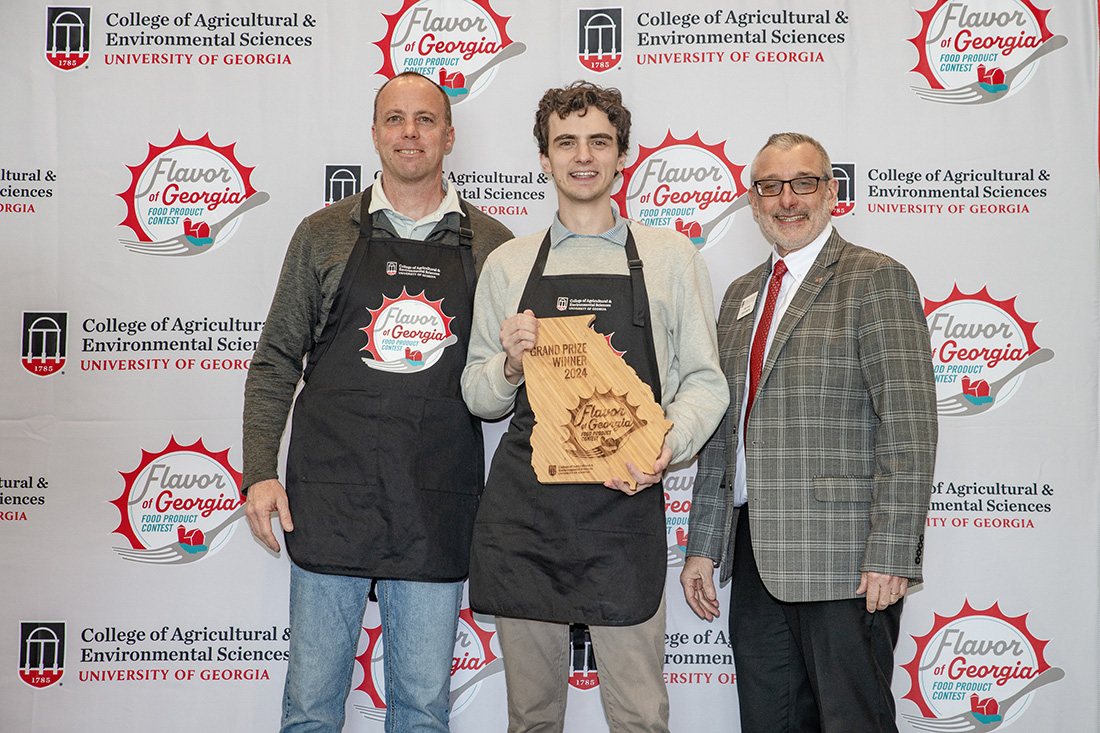A recent University of Georgia study of Americans’ groceries showed that fresh may not always be the best choice — at least not in terms of delivering the vitamins and minerals that families expect from their veggies.
Ronald Pegg, associate professor of food science and technology at UGA, led the study. His team looked at the selected vitamin and mineral content of eight fruits and vegetables — blueberries, strawberries, broccoli, green beans, corn, spinach, cauliflower and green peas.
Nutrients now and later
They analyzed the nutrient values of the produce on the day they were purchased and after the produce had been stored in a household refrigerator for five days. They also analyzed the nutritional content of the same set of fruits and vegetables that had been packaged after freezing.
“The vitamins and nutrients in fruits and vegetables degrade over time, and we found that frozen fruits and vegetables may offer more nutrition than fresh, when storage is taken into account,” Pegg said. “(Fruits and vegetables) are going to have a different nutrient profile after storage than they had when they were taken from the field … (These pieces of produce) are living things. They respire; they age and they break down over time. There are oxidative stresses, microbial stresses and enzymatic stresses, and we end up seeing the loss of nutrient value from these stresses.”
Frozen produce had more vitamins
Pegg’s study showed that some frozen fruits and vegetables had higher levels of vitamin A, vitamin C and of folates than fruits and vegetables that had been stored for five days.
Shoppers tend to consume some of their produce on the day the purchase it from the grocery store and store the rest in the refrigerator for later use, Pegg said. It was important to look at the nutrient levels of these fruits and vegetables after storage to get a clear picture of the nutrition that American shoppers are getting from their produce.
To mimic the shopping habits of multiple households, Pegg’s team took produce samples from multiple stores.
“This particular study was designed from the point of view of the consumer, and it’s one of the first to take into account the way people buy and store produce,” Pegg said.
Less trips to the market
Given the fact that many Americans only buy produce on a weekly or biweekly basis, frozen produce is a convenient and effective way for consumers to get enough of the nutrients and vitamins available in fruits and vegetables, Pegg said.
“Freezing is nature’s pause button,” he said. “It helps maintain the nutritional value of fresh vegetables, even during storage.”
Frozen vegetables are able to maintain more of their nutritional value because they are blanched shortly after being taken from farmers’ fields. This stops the enzymatic reactions that can break down many nutrients. Freezing also slows the enzymatic breakdown of fruits, which are not blanched, and decreases microbial break down.
Pegg studies many commodities
The study, completed this fall, was funded by a grant from the Frozen Food Foundation. Pegg’s past work has focused on measuring the available antioxidants and nutrients in commodities such as pecans, muscadines, peanuts, lentils, coffee and other products.
For more information about Pegg’s work visit www.foodscience.caes.uga.edu/personnel/faculty/pegg.html. For more information about the Department of Food Science and Technology in the UGA College of Agricultural and Environmental Sciences visit www.foodscience.caes.uga.edu.
The Frozen Food Foundation is a not-for-profit organization dedicated to fostering scientific research, public awareness and education regarding the value of frozen foods. More information on the foundation is available at www.frozenfoodfacts.org/.







